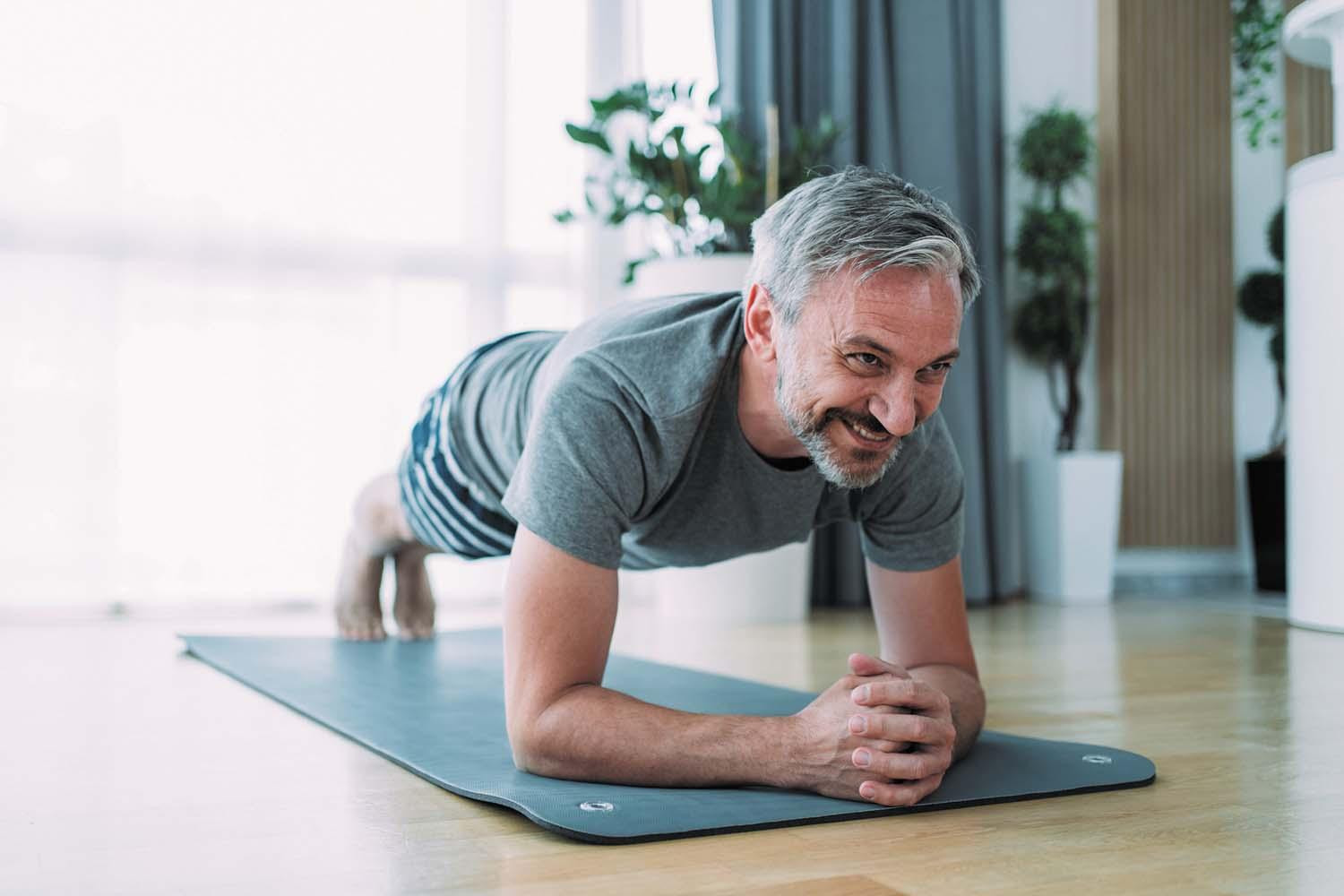
Less butter, more plant oils, longer life?

Healthier planet, healthier people

Counting steps is good — is combining steps and heart rate better?

Appendix pain: Could it be appendicitis?

Can saw palmetto treat an enlarged prostate?

How does Ozempic work? Understanding GLP-1s for diabetes, weight loss, and beyond

Zinc: What it does for the body, and the best food sources

Respiratory health harms often follow flooding: Taking these steps can help

Tips to leverage neuroplasticity to maintain cognitive fitness as you age

Can white noise really help you sleep better?
Balance Archive
Articles
Are you headed for a fall?
People often don't realize they are at high risk for falling until after they've taken a tumble. Studies have shown that maintaining optimal core and postural strength, good balance, and flexibility in the calves and hips are the best ways to prevent falls. At-home tests can help highlight weaknesses in these three areas that can then be addressed with a personal trainer or physical therapist.
Try this: The "old man" test
Putting on your socks and shoes while standing on one leg is a way to evaluate your mobility, balance, core strength, flexibility, and stability.
Beyond the milestone: Health goals for your 50s onward
Setting health goals can help people in their 50s avoid developing a chronic condition that can hamper healthy aging. Goals can include improving balance through various exercises; learning a new skill to improve brain sharpness; seeking age-appropriate cancer screenings, such as for colorectal, cervical, and breast cancers; prioritizing bone health by boosting calcium and vitamin D intake and weight-bearing exercise; maintaining muscle strength through strength and resistance training; and paying closer attention to diet.
Unraveling dizziness
Bouts of dizziness can be unsettling sensations that may last only a few seconds or linger for several minutes or even longer. Episodes may be isolated or recurrent. Many people have a difficult time articulating what they experience when they say they feel dizzy, because the term encompasses a range of sensations like lightheadedness, wooziness, unsteadiness, or spinning. To help identify the cause, people should first consider whether they are experiencing primarily lightheadedness or vertigo.
Fit balance exercises into a busy day
If it's hard to fit balance training into a busy schedule, it might be easier to just do a one-minute balance exercise at different points in the day. Those points might occur during TV watching, cooking, or toothbrushing. Ideas for simple balance exercises include standing on one leg, heel raises, or sit-to-stands—going from a sitting to a standing position, arms crossed, then returning to a sitting position and repeating the process. It's best to stand near a counter or chair for support.
POTS: Diagnosing and treating this dizzying syndrome
Most of us don't think twice about standing up, but for people affected by postural orthostatic tachycardia syndrome (POTS), standing can provoke lightheadedness and a racing heartbeat. While some people with POTS will require medications, most will improve with some specific dietary and behavioral changes.
Dizziness demystified
Vertigo is a symptom, not a condition. It can make people feel lightheaded, faint, unsteady, or like the room is spinning. Common conditions causing vertigo include benign paroxysmal positional vertigo, vestibular migraines, vestibular neuritis, and M'nière's disease. People should see a doctor after a single vertigo episode to determine the cause. Depending on the cause, treatments might include medications, a canalith repositioning procedure, vestibular therapy, and cognitive behavioral therapy. Staying active, not sedentary, between episodes can help people with vertigo feel better.

Less butter, more plant oils, longer life?

Healthier planet, healthier people

Counting steps is good — is combining steps and heart rate better?

Appendix pain: Could it be appendicitis?

Can saw palmetto treat an enlarged prostate?

How does Ozempic work? Understanding GLP-1s for diabetes, weight loss, and beyond

Zinc: What it does for the body, and the best food sources

Respiratory health harms often follow flooding: Taking these steps can help

Tips to leverage neuroplasticity to maintain cognitive fitness as you age

Can white noise really help you sleep better?
Free Healthbeat Signup
Get the latest in health news delivered to your inbox!
Sign Up











